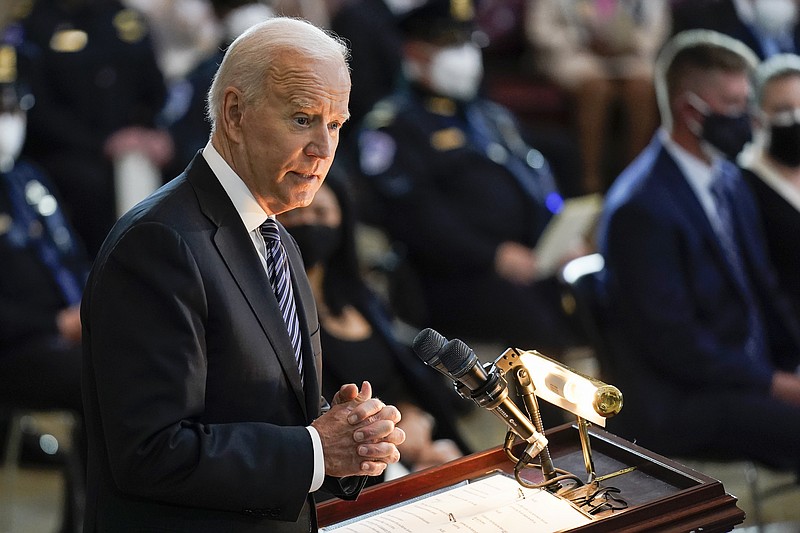WASHINGTON (AP) - President Joe Biden will withdraw all U.S. troops from Afghanistan by Sept. 11, the 20th anniversary of the terrorist attacks on America that were coordinated from that country, several U.S. officials said Tuesday.
The decision defies a May 1 deadline for full withdrawal under a peace agreement the Trump administration reached with the Taliban last year, but it leaves no room for additional extensions. A senior administration official called the September date an absolute deadline that won't be affected by security conditions in the country.
While Biden's decision keeps U.S. troops in Afghanistan four months longer than initially planned, it sets a firm end to two decades of war that killed more than 2,200 U.S. troops, wounded 20,000, and cost as much as $1 trillion. The conflict largely crippled al-Qaida and led to the death of Osama bin Laden, the architect of the Sept. 11 attacks. But an American withdrawal also risks many of the gains made in democracy, women's rights and governance, while ensuring the Taliban, who provided al-Qaida's safe haven, remain strong and in control of large swaths of the country.
Biden has been hinting for weeks that he was going to let the May deadline lapse, and as the days went by, it became clear an orderly withdrawal of the roughly 2,500 remaining troops would be difficult and was unlikely. The administration official said the drawdown would begin by May 1.
Biden's choice of the 9/11 date underscores the reason American troops were in Afghanistan to begin with - to prevent extremist groups like al-Qaida from establishing a foothold again that could be used to launch attacks against the U.S.
The administration official said Biden decided the withdrawal deadline had to be absolute, rather than based on conditions on the ground.
"We're committing today to going to zero" U.S. forces by Sept. 11, and possibly well before, the official said, adding Biden concluded a conditioned withdrawal would be "a recipe for staying in Afghanistan forever."
Defense officials and commanders had argued against the May 1 deadline, saying the U.S. troop withdrawal should be based on security conditions in Afghanistan, including Taliban attacks and violence.
White House press secretary Jen Psaki said Biden will deliver remarks today "on the way forward in Afghanistan, including his plans and timeline for withdrawing U.S. troops." She didn't provide details but said during a White House briefing Biden "has been consistent in his view that there is not a military solution to Afghanistan, that we have been there for far too long."
Several U.S. officials confirmed Biden's withdrawal decision to the Associated Press, and an administration official provided details to reporters on condition of anonymity, speaking ahead of the announcement.
According to the administration official, the only U.S. forces remaining in Afghanistan will be those needed to protect diplomats there. No exact number was provided, but American troop totals in Afghanistan have been understated by U.S. administrations for years. Officials have quietly acknowledged there are hundreds more in Afghanistan than the official 2,500 number and likely would include special operations forces conducting covert or counterterrorism missions, often working with intelligence agency personnel.
Biden's new, extended timeline will allow a safe and orderly withdrawal of American troops in coordination with NATO allies, the administration official added.
The president's decision, however, risks retaliation by the Taliban on U.S. and Afghan forces, possibly escalating the 20-year war. And it will reignite political division over America's involvement in what many have called the endless war.
An intelligence community report issued Tuesday about global challenges for the next year said prospects for a peace deal in Afghanistan are "low" and warned "the Taliban is likely to make gains on the battlefield. If the coalition withdraws support, the report says, the Afghan government will struggle to control the Taliban.

